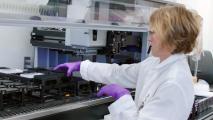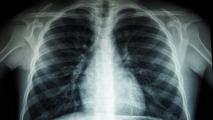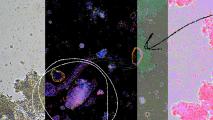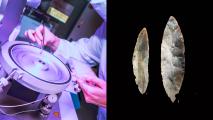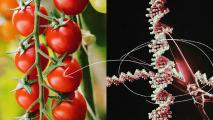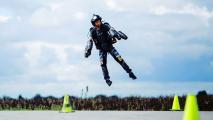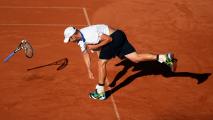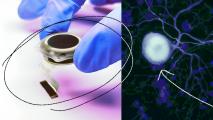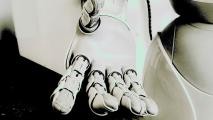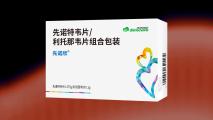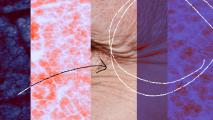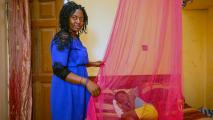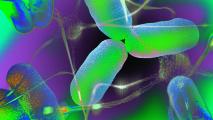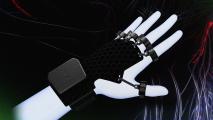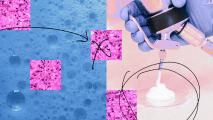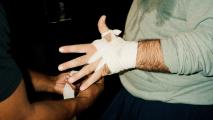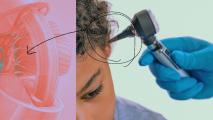
Biotech
Human history has been all but defined by death and disease, plague and pandemic. Advancements in 20th century medicine changed all of that. Now advancements in 21st century medicine promise to go even further. Could we bring about an end to disease? Reverse aging? Give hearing to the deaf and sight to the blind? The answer may be yes. And soon.
More
New non-opioid pain reliever moves closer to approval
Vertex Pharmaceuticals’ new painkiller, VX-548, significantly reduced moderate-to-severe pain in two phase 3 trials.
Inhalable sensors could enable early lung cancer detection
MIT engineers have designed diagnostic particles that can be aerosolized and inhaled to find cancer-associated proteins in the lungs.
“Insane” new type of virus-like organisms found in human gut
Stanford scientists have discovered a strange new class of virus-like organisms, called “obelisks,” in the human gut microbiome.
New DNA testing reveals who made ancient stone tools
Using modern DNA analysis techniques, archaeologists have solved the mystery of who made a class of ancient stone tools.
New CRISPR tomatoes need less watering
Gene-edited tomatoes that can grow with less water could help solve the problem of feeding a world battling increased water scarcity.
First jet suit race is less than a month away
During the world’s first jet suit race, eight competitors will take flight over the water off the coast of Dubai.
Anti-aging pill for senior dogs is now in clinical trials
An anti-aging pill for senior dogs now in clinical trials might lead to treatments that extend human lives, too.
How to find success with the 4 conditions of “intelligent failure”
Intelligent failure occurs in a low-risk environment and leads to growth or new knowledge. To fail intelligently, follow five strategies.
Scientists scrutinize happiness research
Scientists dig into the research on happiness and find there isn’t always sound evidence behind recommended strategies for achieving it.
Elon Musk’s Neuralink has implanted its first device in a human being
Now that Neuralink has implanted a device in a person, CEO Elon Musk is closer to his goal of making brain chips common in the future.
Will AI companions help or hurt the “loneliness epidemic”?
About a third of people are lonely. Three scholars consider whether AI can help, or if it’ll just make things worse.
New antiviral shortens COVID-19 by 1.5 days
People taking simnotrelvir, a new antiviral treatment for COVID-19, felt almost immediate symptom relief and got better 1.5 days faster.
A dietician explains “Zepbound,” the newest weightloss drug
Zepbound recently joined the list of obesity-fighting drugs administered as injections that has been approved by the FDA.
One-and-done anti-aging treatment “rejuvenates” old mice
CAR-T cells that have been modified to target senescent cells could be a one-and-done anti-aging treatment.
World’s first malaria vaccination campaign launches in Cameroon
Cameroon has launched the world’s first malaria vaccine program — a huge milestone on the path to a malaria-free future.
The growing link between microbes, mood, and mental health
New research suggests that to maintain a healthy brain, we should tend our gut microbiome not through pills and supplements, but better food.
Tech hacks the nervous system to bring touch to virtual reality
Afference’s Phantom conducts electrical signals through nerves in the fingers to convince your brain it feels objects in virtual spaces.
Drinking this foam could boost an experimental cancer therapy
A drinkable foam packed with carbon monoxide molecules appears to boost the cancer-killing effects of autophagy inhibitors.
No pain, no gain? Science debunks yet another exercise myth
Exercise culture advertises intense workouts as the best way to see gains. But research suggests moderate exercise is better.
Deaf boy hears within days of receiving new gene therapy
A gene therapy designed to treat a rare form of genetic deafness has restored hearing in the first patient to receive it.
Get inspired with the most innovative stories shaping the world around us.













